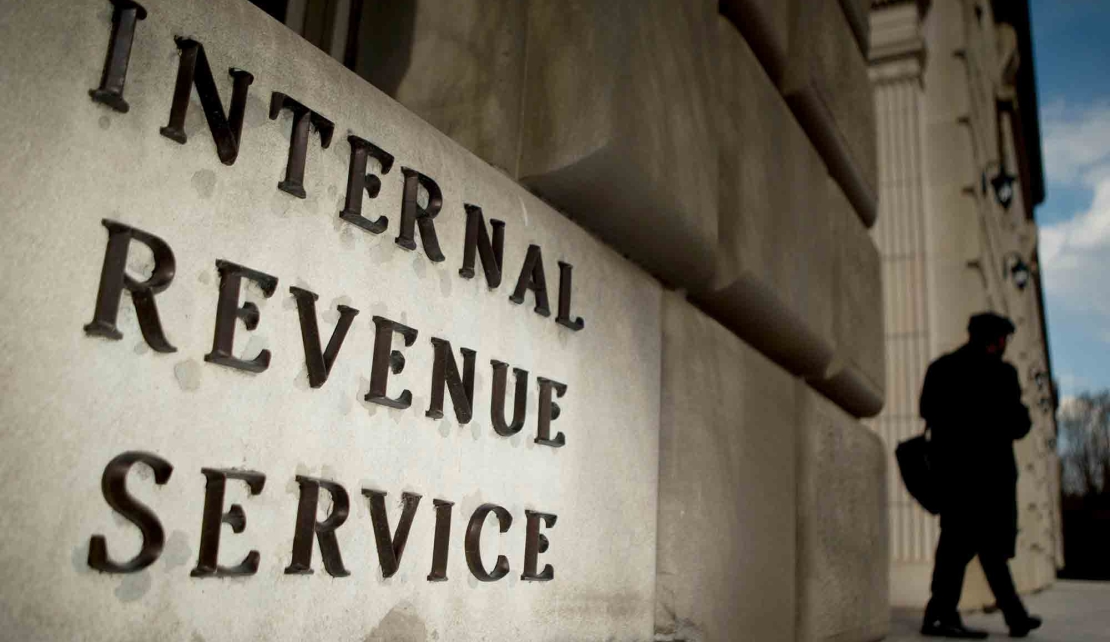UNITED STATES | How Federal Tax Law Hurts Black Americans

CENTRE FOR PUBLIC INTEGRITY, Washington DC, April 15, 2022 - President Joe Biden recently proposed a new “Billionaire Minimum Income Tax” that would raise taxes on the wealthiest Americans.
The measure would require households worth more than $100 million to pay a new tax at a rate of at least 20% of their income and on unrealized gains in the value of liquid assets, like stocks.

The result has been that the country’s wealthiest effectively pay lower tax rates than many others, benefiting from rules that do little or nothing for most residents — including most Black Americans.
Requiring those who earn more to pay more in taxes would chip away at the country’s dramatic wealth gap. But it’s just one piece of the puzzle.
While the tax system rewards the wealthiest Americans — a group that is overwhelmingly white — it also disproportionately punishes lower-income households, particularly if they’re Black.
For example, the IRS audits people receiving the Earned Income Tax Credit, a tax break for low- and moderate-income workers, at a higher rate than the affluent. Those audited most are in rural, largely Black counties in the Deep South.
Dorothy A. Brown, a law professor at Emory University, has been examining racial discrimination in the U.S. tax code for years. She published a book last year, “The Whiteness of Wealth: How the Tax System Impoverishes Black Americans — and How We Can Fix It,” that digs into the racism of the federal tax system.

The U.S. Supreme Court ultimately upheld their right to do this.
But married households, where both spouses bring in similar incomes can’t reap the rewards of this provision. And even in high-income households, Black couples are more likely than white couples to both be working.
The Center for Public Integrity spoke with Brown to talk about what else makes the federal tax system racist and what more needs to change to help close the racial wealth gap.
This conversation has been edited for length and clarity.
Q: Although the IRS and Treasury Department don’t actually track tax data by race, you’ve found several ways in which the federal tax code benefits white households while Black households end up paying high shares of their income. Can you talk a little bit about some of the ways the tax system discriminates against Black households?
Nobody talks about tax policy when they’re talking about the racial wealth gap, and I wanted to show how important tax law would be if we really do want to reduce or eliminate the racial wealth gap. Tax law, every April 15, makes things worse. Until we start talking about it, until we get race and tax data as a general matter, then the status quo is going to remain.
Let’s take homeownership because most Americans have a lot of their wealth from home owning. And we know that homeownership in America is very [much shaped by race]. We know that the federal government enabled white Americans to become homeowners but then denied those same benefits to Black Americans.
But then we say, OK, but aren't homeowners treated the same, whether they're white or Black? And the answer is no, because there's a provision in the tax law that says if you sell your home for a gain, you can exclude up to half a million dollars — if you're single, a quarter-of-a-million dollars; if you're married, half a million dollars. There's another provision in the code that says, if you sell your home for a loss, no tax break.
Well, sociology research going back decades shows that white and Black Americans live in different neighborhoods and the neighborhoods with the most appreciation are the all-white or almost all-white neighborhoods that most Black Americans do not live in.
And this sociology research tells us the all-Black or racially diverse neighborhoods are undervalued. They don't appreciate the way the identical home in a white neighborhood would, and Black homeowners are more likely to sell at a loss that’s not deductible than their white peers. So tax law gives this huge tax break to the way the typical white American owns a home, but not the way Black Americans own homes.
Q: A lot of federal agencies collect information by race and ethnicity. Why doesn’t the IRS do the same?
To say they’re an outlier does violence to the word “outlier.”
The IRS commissioner has testified before Congress and has said, “we don't discriminate on the basis of race” — and their evidence of that is they don't publish statistics on race. So part of it is, “We don't know race. How could we be discriminatory?”
Except we know from research, who's getting audited are disproportionately Black taxpayers in the rural South who are claiming the Earned Income Tax Credit. So even though the IRS says, “Oh, we don’t know anything about race. We couldn’t possibly be discriminating,” that's what you're doing.
So I think the IRS uses it as a shield against anyone claiming they are discriminating, but the problem is you can discriminate, or the system can discriminate on the basis of race, whether you know the person's race or not, because here's what tax returns tell us: They tell us ZIP code and surname. And that’s enough. There are researchers who have imputed race into tax statistics based on ZIP code and surname because we live in a racially segregated country.
Q: What are your impressions of the White House’s proposals to raise taxes for the wealthiest Americans?
Making the richest Americans pay more taxes is moving in the right direction, because right now, rich, white Americans get away with not paying their fair share in taxes whereas Black Americans are paying more than their fair share of taxes.
The idea that [rich, white Americans] would pay more is not only beneficial to reducing the racial wealth gap, it's consistent with our progressive income tax system that's based on ability to pay. No one has a greater ability to pay than rich, white guys.
But what we needed — when President Biden put out the plan, why didn't he also have a racial equity analysis? Who's this going to help? Who's this going to hurt? It’s a problem when progressives don't want to talk about race. The progressive tax ideas need to lean in on who is benefitting and who isn’t.
Q: What are some of the things you would like to see happen to the federal tax system to address the racial inequities in it?
The first thing I'd say is stop auditing Earned Income Tax Credit recipients when you're not auditing the richest Americans as much. You’re preying on people who don't have fancy tax lawyers, and that's why you're doing it.
And I’d say to the Biden administration, if you're talking about tax policy proposals, what's the racial impact analysis? That should be a given. How is it going to impact the racial wealth gap? If it's not moving the needle, you shouldn't be talking about it.
This article first appeared on Center for Public Integrity and is republished here under a Creative Commons license.
